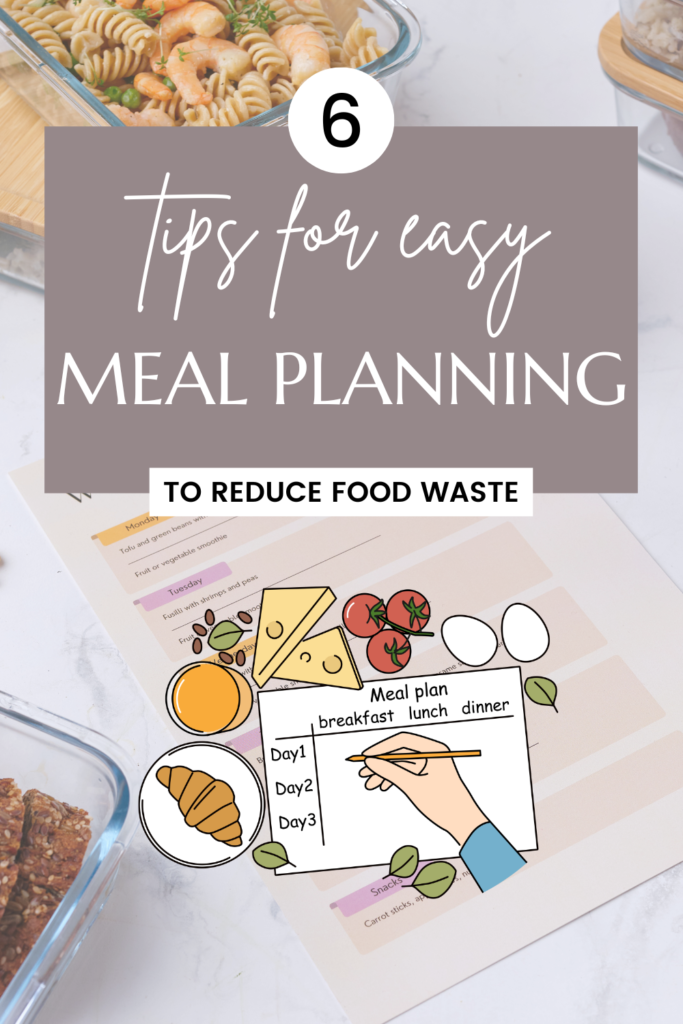Hey earth muffins! Food waste is a pressing global issue, and one of the top contributors is lack of meal planning. However, with effective planning, we can minimize food waste while also saving money and time. In this blog post, we’ll delve into the best tips for meal planning that can help you reduce food waste and make a positive impact on the environment. Let’s jump right into it!

1. Take stock of your fridge, freezer, and pantry
Before planning meals, assess what you already have. This is important because you want to use up what is in the cupboards before buying new things. In addition, prioritize the ingredients that are nearing expiration or those that have been in your pantry for a while.
2. Plan every single week
You must take the time to meal plan each week! I personally find Sunday the perfect day to do this, but do what works best for you and your family. Create a menu for the upcoming week, considering your schedule and how many days you intend to eat at home. I’ve also found it easier to do small grocery shops each week to ensure that I am reducing my food waste while I shop.
3. Have your plan in plain view all week
It’s one thing to think through your meals for the week… And come Wednesday you totally forget the plan! It is much more helpful to write it down and put it where you will see it every day. This might be in your planner or as a note on the fridge. When you see it, you’ll stick to it!
4. Use portioning and batch cooking
Consider the number of servings you require for each meal and portion accordingly. In addition, leftovers can be planned as meals for the next day, preventing excess cooking and waste. I usually set aside Friday as the “fun” night of the week to use up any leftovers from the other weekdays.
5. Have a plan for leftovers and utilize the freezer!
Turn last night’s roast vegetables into a salad, or blend surplus fruits into smoothies. If you cook more than needed, freeze the extra portions. Label them with the date and contents to keep track and ensure you use them before they go bad. This ensures minimal food waste as well.
6. If you must, compost remaining scraps
Even if you are truly trying to reduce food waste, it can be difficult to get it right 100% of the time. If you have food scraps that can’t be repurposed, consider composting. This reduces the amount of waste going to landfills.

There you have it – the best tips for meal planning to help reduce food waste! Implementing these tips can help you become more conscious of your consumption and contribute to a more sustainable lifestyle. Let’s work together to minimize food waste and create a better, more responsible future! How do you meal plan??
Love,
Jenna ♥





Thank you for these suggestions! My husband and I are trying to be more mindful about what we have and want to make sure we use everything up before heading to the grocery store.